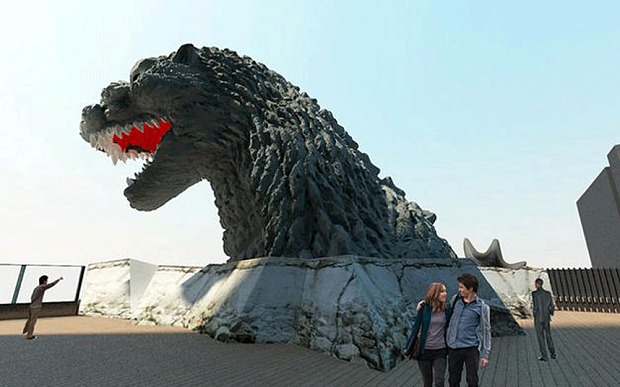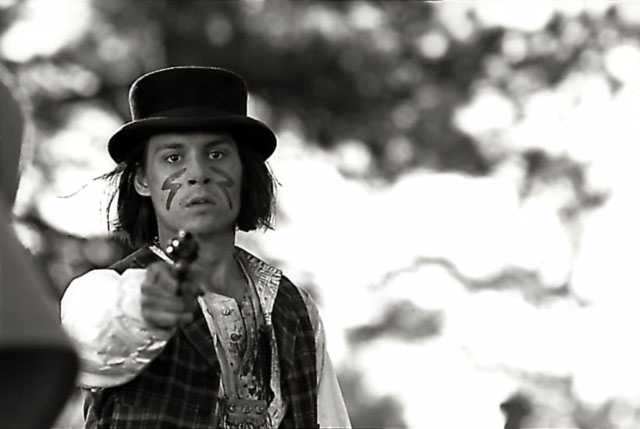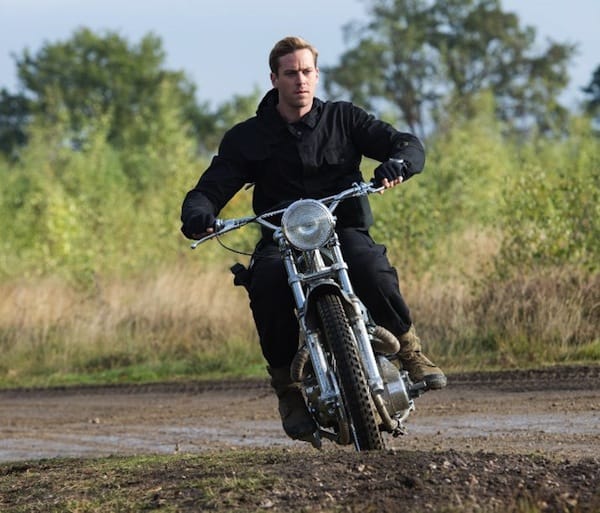 Orphan Black, Season 3, Episode 9, “Insolvent Phantom of Tomorrow”
Orphan Black, Season 3, Episode 9, “Insolvent Phantom of Tomorrow”
Written by Russ Cochrane
Directed by Vincenzo Natali
Airs Saturdays at 8pm (ET) on BBC America
Orphan Black has been on a roll in the back half of the third season, focusing back in on character—rather than plot—with tremendous results. Unfortunately that forward momentum stalls in this episode, as Sarah, Felix, and Mrs. S head to London to find the Castor original. While their trip across the pond allows for one of the episode’s best moments, Mrs. S rocking out with her former band, it also leads to the latest development in what has been a disappointingly plot-heavy season. It’s fun to watch Maria Doyle Kennedy perform one of her own songs (“Stuck”), but that’s not why it’s such an effective moment. The jam session gives much-needed nuance and background to the woefully underserved Mrs. S, humanizing her and letting the audience, and Sarah and Felix, see a bit of what she was like before Projects Leda and Castor took over her life.
Adding new twists and turns to the Castor conspiracy, as the rest of this corner of the episode does, is nowhere near as interesting, despite the familial connection revealed. Having even more of Mrs. S’s background defined by Castor and Leda distances her from the audience and the fact that she is unaware of this rather significant tie between herself and Sarah (her daughter is her mother? That’s fun) adds a new and utterly unnecessary level of contrivance and/or conspiracy to the proceedings. The success of Sarah’s London excursion comes down to this revelation: for those for whom it worked, this episode is likely much more successful. For those like myself who are less convinced, it’s another opportunity to humanize and flesh out the characters—how do we go to London and not see a single of baby Sarah and Felix’s favorite spots?—wasted in favor of plot mechanics.
With Sarah out of the country, there should theoretically be more time for the rest of Clone Club, but both Alison and Cosima spend much of the episode on the bench. Instead, Delphine takes the reins with Shay, whose military background may be suspicious, but is thankfully all but revealed to be unconnected to the rest of the action of the season. Hopefully the writers aren’t pulling a longer con on the audience, waiting to turn Shay into a Paul-like figure. Ksenia Solo has been charming and fun as Shay, and could easily pull off shifting the character into a murkier, more morally dubious figure, but it’s refreshing to have at least one character unrelated to the conspiracies dragging down the energy of the season.
Orphan Black works best when it is willing to sit with its characters, getting to know them as people and exploring how they view the world, and how that is shaped by their unique, Clone Club-inspired experiences. This is what made the Felix and Cosima scenes so wonderful earlier in the season. The high-drama Cosima and Delphine scenes have been much less successful, and not only because the animosity following their seemingly mutual split has been so poorly developed or explained. Delphine feels like an entirely different character, the show taking their Delphine-as-the-new-Rachel concept a bit too literally, and she and Cosima are in desperate need of an honest, non-judgmental airing of the grievances because at this point, it’s hard to remember where Cosima’s lack of trust for Delphine is coming from.
Fortunately Helena picks up the slack and like last week, her material with Donnie is once again the most delightful aspect of the episode. Gracie’s connection with Helena is touching and it’s nice to get one more scene with them together before Gracie leaves. While she makes sense as the Castor mole, it’s a shame she’s already leaving Casa Hendrix; Gracie is much more interesting when she’s Clone Club adjacent than when she’s with Mark or her crazy family. Helena’s assertion that she, “walk[s] a different path” now is admirable and it does seem like she means it; she’s been on her best behavior since escaping from Project Castor. But that doesn’t make her off screen slaughter of the drug dealers threatening Alison and Donnie’s children any less satisfying (thought it does help that we don’t actually see it—carnage as comedy tends to work better when left to the imagination). Helena is many things, but she’s also a remorseless killer. That may end poorly for her one day, but given the gray area so much of his season has trod, particularly Sarah’s immediate empathy for the Castors upon learning she’s biologically tied to them, Helena’s moral absolutism—threaten children, and you’re dead—is welcome. The different chemistry Tatiana Maslany is able to share with her castmates when playing various clones is one of her more impressive skills and Maslany-as-Helena’s rapport with Kristian Bruun is fantastic, easily a standout pairing for season three. Helena is an extreme character and counterpointing her with the show’s most relatable figures has worked well in the past, particularly Art. It’s hard to get more relatable than Donnie. With any luck, there’s plenty of Helena and Donnie coming in next week’s finale as well as the already confirmed season four.
Season three has struggled with its sprawling plot and ever increasing character list, building momentum in one storyline only to sputter to a stop when others come to prominence. Hopefully in the finale, the creative team will be able to streamline what has become an unwieldy show and set up a more concise, character-driven season four.




